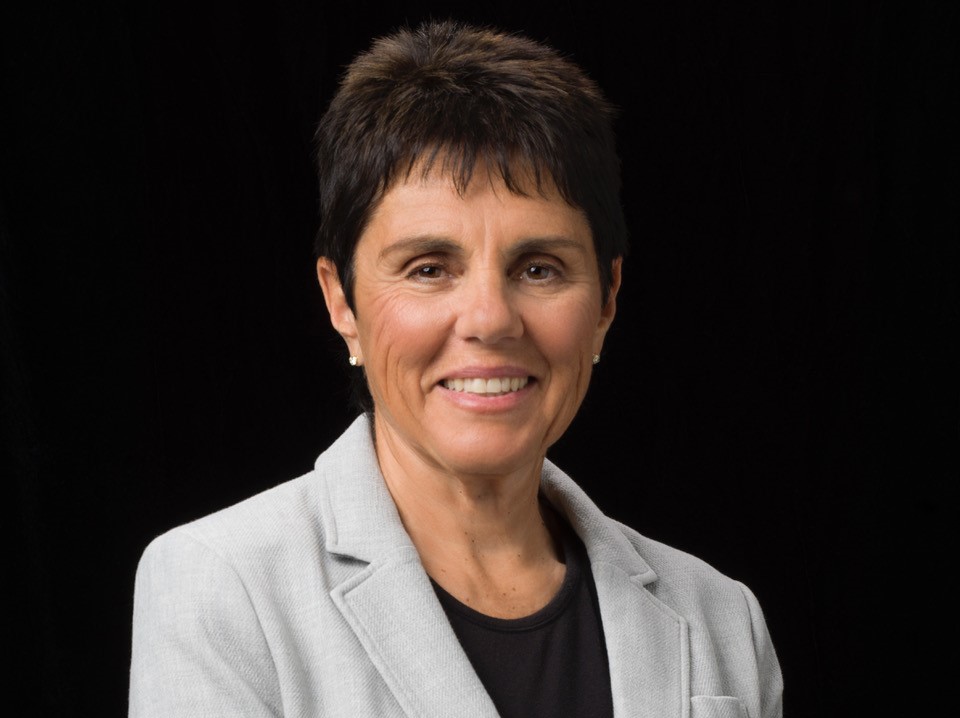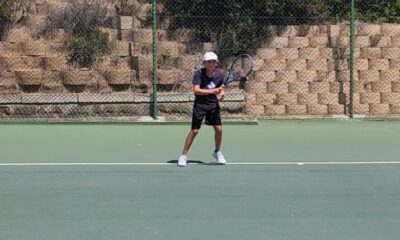
Sport

Tennis legend Kloss honoured to clinch tournament
Former South African number-one tennis player Ilana Kloss says it was a dream come true to win Junior Wimbledon in 1972 as a teenager, and now, this Jewish legend of South African sport is honoured that an international women’s tennis tournament is going to be named after her.
Rising South African stars will compete against international competitors in The Ilana Kloss International, an upcoming International Tennis Federation (ITF) tournament in Pretoria that starts on 5 March.
This World Tennis Tour $25 000 (R430 000) ITF prize-money event starts at TuksTennis, the University of Pretoria’s tennis centre. Organisers chose to name it after the Johannesburg-born Kloss, whom they describe as “a living legend” in this country.
“I wish all the participants the best of luck, and I know this tournament will give rising South African stars a chance to display their immense potential,” Kloss said ahead of the tournament, which will be taking place for the fourth time.
Local women’s tennis has been further boosted by yet another women’s international tournament in Pretoria at the same venue on 12 March.
These tournaments don’t just further TSA’s pledge to host more women’s events, they “offer South African players an opportunity to earn valuable international ranking points on their home turf without incurring the high costs and associated stresses of international travel”, says Kloss, a two-time Grand Slam doubles champion.
Kloss, an inductee in the United States National Jewish Sports Hall of Fame and International Jewish Sports Hall of Fame, told the SA Jewish Report that one of the highlights of her tennis career was winning the singles, doubles, and mixed titles at the Maccabi Games in 1973 and then being chosen to carry the South African flag in the 1977 Maccabiah.
“I led the country’s delegation into the stadium in Israel with my hero, the country’s prime minister Golda Meir, in attendance,” she said.
Kloss is a winner of Junior Wimbledon, which the likes of Martina Hingis, Amelie Mauresmo, Caroline Wozniacki, Ivan Lendl, Pat Cash, and Roger Federer went on to win. “I wasn’t seeded, and it was a big upset,” Kloss said. “Also, Tennis South Africa didn’t want me to go. In those days, they only sent boys, not girls, so my parents and my coach, Sheila Summers, helped to make the trip possible.”
Kloss clearly remembers winning the United States Open Junior title in 1974, two Grand Slam doubles titles, the United States Open Women’s Doubles in 1976 with South African Linky Boshoff, and the French Open Mixed Doubles with Australian Kim Warrick in 1976.
She grew up in a traditional Jewish family. “Fortunately, my parents were open-minded and encouraged my sister, Merle, and me to be independent and follow our dreams. Both my parents were members of Jeppe Lawn Tennis Club and loved tennis. Every weekend was spent at the tennis club. I loved tennis from the very beginning, and would hit tennis balls against the wall until I could get an adult to play with me.
“We were also fortunate to have the South African Open Tennis Championships at Ellis Park annually, where the best players in the world participated. I was a ball girl for the tournament. Seeing how good the best were, I became obsessed with becoming good enough to be a pro and travel the world.”
Kloss has the following advice for South African tennis players who hope to follow in her footsteps: “Work hard, be sure to compete in tournaments, and surround yourself with great coaches on and off the court.”
Kloss said she had met all the top tennis players over the years. “From Rod Laver, Billie Jean King, and Arthur Ashe, to every top player from each generation.”
She said her parents helped to shape her Jewish identity. “My parents instilled wonderful values about respecting others who aren’t like us and always helping those who might be less fortunate. When you give, you tend to receive.”
After she hung up her tennis racket, Kloss was chief executive and commissioner of World TeamTennis, managing both the professional sports league and nationwide grassroots recreational programmes from 2001 to 2018.
Today, Kloss is the chief executive of Billie Jean King Enterprises, where she leads business development and oversees strategic partnerships. “We focus on three areas: representation of Billie Jean and overseeing her marketing, branding, and legacy; representation of other athletes and media sports personalities; and consulting in sports and business,” she says. “We also focus on investment in various sports-related teams and business or technology mostly focused on helping women.”
Kloss is also actively involved in the Women’s Sports Foundation as a member of the executive board. She was named Sports Businesswoman of the Year by the Warsaw Sports Marketing Centre in 2007. She’s a part owner of the Los Angeles Dodgers, Los Angeles Sparks, and Angel City Football Club. She serves on the board of the Elton John AIDS Foundation and Billie Jean King Leadership Initiative, and is a senior advisor to the Professional Women’s Hockey Players Association.
Kloss is a member of both the National and International Jewish Sports Hall of Fame, sitting alongside the likes of Ali Bacher and Syd Nomis as one of the 11 South Africans in the latter hall. She’s well-known for her work with her long-time partner, the legendary Billie Jean King, as an advocate for gender equality, inclusivity, and diversity, in sport as well as in wider society.
Tennis is “big business now”, Kloss said, compared to her playing days. “The equipment, training, and technology have added a lot,” she said.










